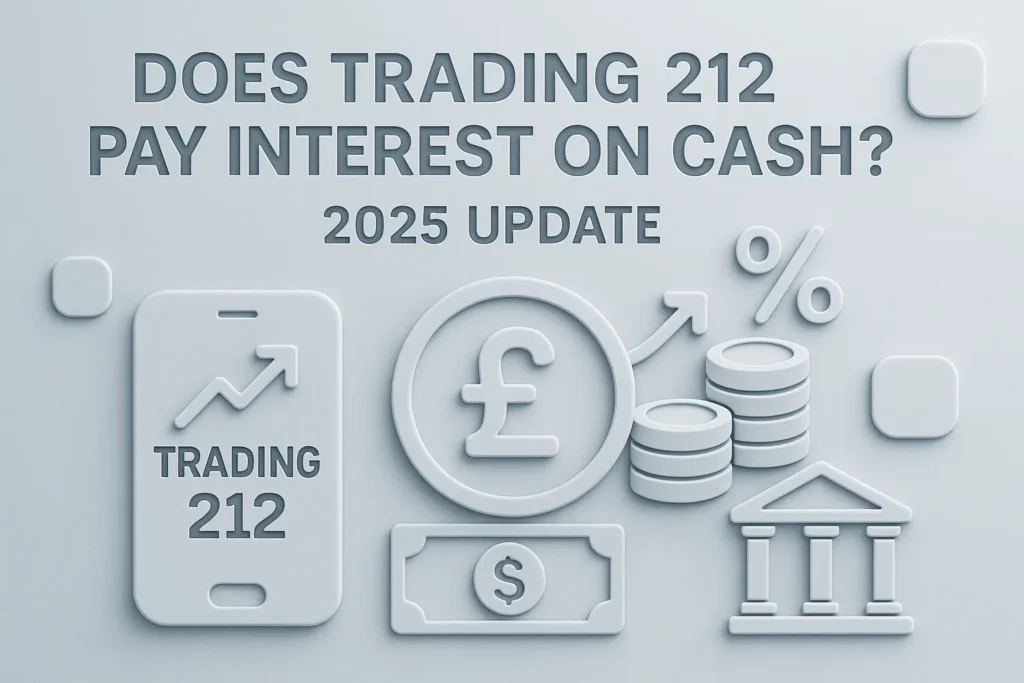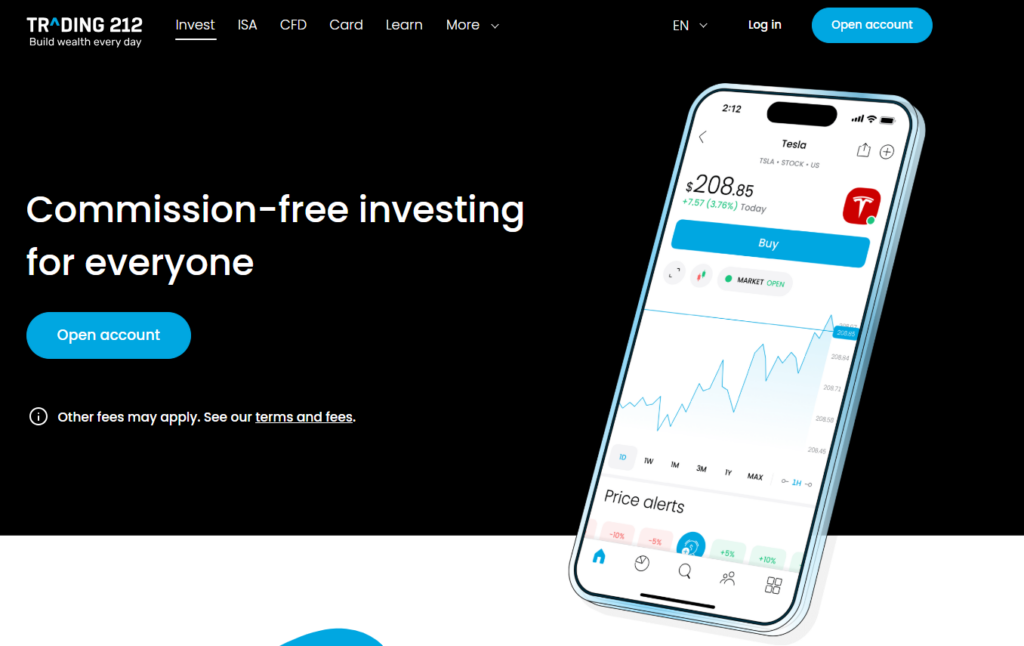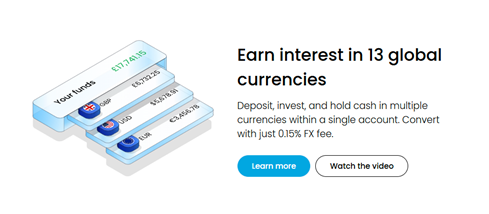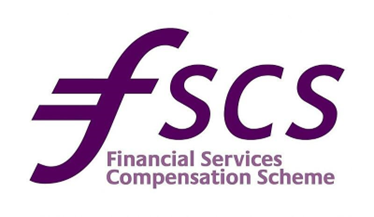Does Trading 212 Pay Interest on Cash? – 2026 Update

- expertise:
- Platform Testing, Cryptocurrency, Retail Investing
- credentials:
- Active investor since 2013 · 11+ years experience
- tested:
- 50+ platforms · 200+ guides authored

- expertise:
- CFD Trading, Forex, Derivatives, Risk Management
- credentials:
- Chartered ACII (2018) · Trading since 2012
- tested:
- 40+ forex & CFD platforms with live accounts
How We Test
Real accounts. Real money. Real trades. No demo accounts or press releases.
What we measure:
- Spreads vs advertised rates
- Execution speed and slippage
- Hidden fees (overnight, withdrawal, conversion)
- Actual withdrawal times
Scoring:
Fees (25%) · Platform (20%) · Assets (15%) · Mobile (15%) · Tools (10%) · Support (10%) · Regulation (5%)
Regulatory checks:
FCA Register verification · FSCS protection
Testing team:
Adam Woodhead (investing since 2013), Thomas Drury (Chartered ACII, 2018), Dom Farnell (investing since 2013) — 50+ platforms with funded accounts
Quarterly reviews · Corrections: info@theinvestorscentre.co.uk
Disclaimer
Not financial advice. Educational content only. We're not FCA authorised. Consult a qualified advisor before investing.
Capital at risk. Investments can fall. Past performance doesn't guarantee future results.
CFD warning. 67-84% of retail accounts lose money trading CFDs. High risk due to leverage.
Contact: info@theinvestorscentre.co.uk
Quick Answer: Does Trading 212 Pay Interest on Cash?
Trading 212 pays 3.80% AER on GBP balances held within its Cash ISA, tracking the Bank of England base rate minus 0.15 percent. Interest is variable, calculated daily, and paid monthly. Cash held outside an ISA earns slightly lower rates, depending on the currency.
 Top Rated
Top Rated
Regulated social trading with 30M+ users. Trade stocks, crypto, and ETFs commission-free* in one sleek interface. *Other fees may apply.
CFDs are complex instruments and come with a high risk of losing money rapidly due to leverage. 50% of retail investor accounts lose money when trading CFDs with this provider. You should consider whether you understand how CFDs work, and whether you can afford to take the high risk of losing your money.
Trading 212
Use code ‘TIC’ to get a free fractional share worth up to £100
- Minimum Deposit: £1 (via bank transfer or card)
- Invest in stocks, ETFs, and forex with zero commission*
- FCA regulated and trusted by over 2 million users
- Intuitive mobile and web platforms with real-time data
- Interest on cash, ISA Account available
*Other fees may apply. See terms and fees.
When Investing, Your Capital is at Risk.
Introduction
When I first started using Trading 212, one of my main questions was whether I could earn interest on uninvested cash. I didn’t want my money sitting idle—especially when banks and other platforms were offering competitive rates.
After researching the platform and using it firsthand, I learned how Trading 212 treats cash balances, what interest is available, and how it compares with other brokers. In this article, I’ll explain everything you need to know and share practical insights to help ensure your money continues working for you.
Interest rates are variable and may change at any time. The 3.80% AER rate applies to Trading 212 GBP Cash ISA accounts as of 2026 and was correct at the time of writing.
Always refer to Trading 212’s official website for the most up-to-date rates, terms, and eligibility criteria.

What is Trading 212?
I’ve been using Trading 212 for a while now, primarily for long-term stock and ETF investing, and over time, I’ve explored how the platform operates and whether it fits my investment style. Trading 212 has carved out a strong reputation as a commission-free* trading platform, making it an attractive choice for retail investors like myself who want to minimize costs while building a diverse portfolio. If you’re considering the platform, you might find my Trading 212 review helpful, where I share my full experience and insights.
*Other fees may apply. See terms and fees.
Types of Accounts Available
One of the things I appreciate about Trading 212 is the flexibility in account types depending on your investment goals. Here’s how I see them:
- Invest Account – This is where I build my long-term portfolio. It allows me to buy stocks and ETFs without paying commissions, making it a cost-effective way to grow wealth over time.
- ISA Account (For UK Users) – Since I’m based in the UK, I found the Stocks & Shares ISA incredibly useful. Any profits I make within this account are completely tax-free, which is a huge advantage for long-term investors looking to maximize returns without worrying about capital gains or dividend taxes.
- CFD Account – While I mainly stick to stocks and ETFs, Trading 212 also offers Contracts for Difference (CFDs) for those interested in short-term trading with leverage. These instruments allow traders to speculate on price movements without actually owning the underlying asset. However, since CFDs carry a much higher risk (especially with leverage), I prefer to avoid them and focus on traditional investments instead.

What is the Trading Experience Like?
In my experience, Trading 212 is one of the easiest platforms to use. The interface is intuitive, whether I’m using the mobile app or desktop version. Buying and selling assets is seamless, and I love that the platform provides a fractional shares option, which means I can invest in expensive stocks without needing thousands of pounds upfront.
Another huge plus is the commission-free* trading model. Unlike traditional brokers that charge per trade, I don’t have to worry about high fees eating into my profits. That said, while Trading 212 doesn’t charge commissions*, there are still some costs to be aware of, like spreads, currency conversion fees, and potential withdrawal charges. If you want a full breakdown, check out my Trading 212 fees explained guide to ensure you understand all the costs before you start trading.
*Other fees may apply. See terms and fees.
What Happens to My Uninvested Cash?
One thing I appreciate about Trading 212 is that, unlike some other brokers, they do pay interest on uninvested cash.
They generate this interest by investing idle cash into:
- Qualifying Money Market Funds (QMMFs)
- Time deposits
- Current accounts with regulated banks
Plus, all client funds are held in segregated accounts, and if you’re in the UK, eligible deposits are FSCS-protected up to £120,000.
How Much Interest Does Trading 212 Pay?
How Much Interest Does Trading 212 Pay on Uninvested Cash?
Trading 212 pays 3.85% AER on GBP balances held as uninvested cash in investment accounts. Rates differ by currency (e.g. EUR, USD). These rates are variable. Always check the “Interest on Cash” section in your app for the current figures.

How Does Trading 212 Compare to Other Brokers?
I also looked into how their rates compare to other platforms. Here’s what I found:
| Platform | Interest Rate (GBP) | Conditions & Requirements | Additional Perks | Payout Frequency | Currency Support |
|---|---|---|---|---|---|
| Trading 212 | 3.85-4.05% AER | No minimum balance | Commission-free trading | Daily | GBP, EUR, USD |
| eToro | Up to 4.3% | Requires eToro Club membership | Copy trading | Monthly | Multiple currencies |
| Freetrade | 3% | Requires Standard plan membership | ISA + Full Stop Range | Monthly | GBP only |
| Interactive Brokers | Up to 3.9% | Tiered rates based on balance | Advanced trading tools | Daily | USD, GBP, EUR |
| Revolut | Up to 5% AER (variable) | Interest shown is for the Ultra plan | Integrated banking & investing | Daily | Multiple currencies |
Note: As of writing this (2026), these figures are correct. These rates can change, so it’s always worth checking the latest terms before making a decision.
What Method Does Trading 212 Use to Generate Interest on Cash?
Does Trading 212 Charge for Deposits?
When I first started using Trading 212, I was curious about how they handled idle cash. Instead of letting it sit in my account without earning anything, I discovered that Trading 212 invests unallocated cash balances into Qualifying Money Market Funds (QMMFs)—a common practice among financial institutions.
These funds typically hold government bonds, treasury bills, and high-quality debt instruments, which are considered low-risk and highly liquid. The goal is to generate modest but stable returns while keeping funds accessible. From my research and experience, this approach is similar to how banks earn interest on deposits but with a greater focus on short-term, low-risk investments.
Will My Cash Be Safe?
Trading 212 takes several steps to ensure your funds are safe and secure, including:
- Segregated Accounts – One of my main concerns was whether my money would be mixed with Trading 212’s operational funds. Thankfully, they keep customer funds in segregated accounts, which means my cash is completely separate from the company’s own finances. This provides an extra layer of security in case of financial trouble on their end.
- FSCS Protection – Since I’m based in the UK, I also checked whether my money was covered by the Financial Services Compensation Scheme (FSCS). The good news? Deposits up to £85,000 are protected if Trading 212 were to become insolvent. However, it’s important to note that this does not cover losses from market fluctuations or investment risks—just the security of my deposited cash.
- Currency Risks & Conversion Fees – One thing I always advise traders to watch out for is currency risk. If you’re holding cash in a different currency than your base account, you might incur conversion fees when withdrawing funds. This has caught me off guard a couple of times, so now I always check how my cash is being held to avoid unnecessary costs.
Of course, security is a top concern for any trader, and if you’re wondering is Trading 212 safe?, it’s worth exploring the platform’s regulations, account protections, and overall reliability before signing up.

What Are the Pros and Cons?
| Category | Pros | Cons |
|---|---|---|
| Interest Rates | Competitive rates compared to some banks and brokers | Rates are variable and subject to change |
| Accessibility | No minimum balance is required to earn interest | Not available on all account types |
| Payouts | Interest is paid daily | Interest may be taxable in some regions |
| Security | FSCS protection for eligible UK deposits | Not all funds qualify for FSCS protection |
| Currency Support | Available in multiple currencies | Currency conversion fees may apply |
For me, the biggest advantage is earning a passive income on cash I’m not using for trades. But if you frequently convert currencies, keep an eye on fees.
Where Can I Toggle Interest on Cash in Trading 212?

How Do You Activate Interest?
- Step 1: Log in to Trading 212.
- Step 2: Tap on ‘Interest on Cash’ in your account settings.
- Step 3: Follow the on-screen instructions and tap the ‘enable’ button.
Can You Disable It?
Yes, and it’s just as easy. I appreciate this flexibility since it lets you decide based on your tax situation or preferences.
Are There Better Alternatives to Earning Interest on Cash?
If you’re looking for higher yields, here are some options I’ve explored:
1. High-Yield Savings Accounts
- Best for: Those who want a secure, FSCS-protected option.
- Pros: I’ve seen rates up to 5% annually.
- Cons: It takes longer to transfer money back for trading.
2. Money Market Funds & Bonds
- Best for: Low-risk returns with easy access.
- Pros: Generally better returns than keeping cash idle.
- Cons: Some market fluctuations involved.
3. Dividend Stocks
- Best for: Long-term investors who want passive income.
- Pros: I reinvest my dividends to grow my portfolio.
- Cons: Stock prices can drop, so there’s risk involved.
Final Thoughts
I like the fact that Trading 212 allows me to earn interest on uninvested cash, and the rates remain competitive compared with many alternatives. That said, it’s still sensible to review other options from time to time.
From my experience, Trading 212’s approach to idle cash is a practical way to generate passive interest while keeping funds accessible. Rather than earning nothing on unused balances, it’s reassuring to know cash continues working in the background, even if returns are modest. As always, it’s worth checking Trading 212’s latest rates and policies to ensure this fits your wider financial plans.
If you regularly hold cash on the platform, this feature is well worth considering. Just keep potential currency conversion costs and market movements in mind when transferring or reallocating funds.
2026 Trading 212 Platform Update
In 2026, Trading 212 continues to refine its platform with faster app performance, clearer portfolio reporting, and competitive interest on uninvested cash. FCA regulation and FSCS protection up to £120,000 add reassurance. Zero-commission investing, ISA support, and fractional shares make the platform appealing for beginners and cost-conscious long-term investors. Updates and simple design help users invest confidently across market cycles.
Remember:
- If you trade frequently, it is a great feature.
- If you want a passive income, compare high-yield savings accounts or dividend investing.
Final Tip: Check Trading 212’s latest rates before deciding, and always make sure your cash is working for you!
FAQs
How often is interest paid on cash balances in Trading 212?
Trading 212 pays interest daily, and the earnings are automatically credited to your account. The exact amount depends on your cash balance and the applicable interest rate for your currency.
Are there any requirements to earn interest on Trading 212?
No, Trading 212 does not require a minimum balance to earn interest. However, interest rates may fluctuate based on market conditions, and certain account types may not be eligible.
How does Trading 212 generate interest on uninvested cash?
Trading 212 invests idle cash into Qualifying Money Market Funds (QMMFs), time deposits, and current accounts with regulated financial institutions to generate returns.
What are the best alternatives to Trading 212’s interest on cash?
If you’re looking for higher yields, consider high-yield savings accounts (up to 5%), money market funds, or dividend stocks as alternative ways to maximize your uninvested funds.
References
- Trading 212 Help Centre – What is interest on cash?
- Financial Conduct Authority (FCA) – Consumers | FCA
- Financial Services Compensation Scheme (FSCS) – Financial Services Compensation Scheme | FSCS
- Bank of England Interest Rate Trend – Interest rates and Bank Rate
- Financial Times Market News – UK interest rates

- ✓ Deposit £500–£999 → Get £40
- ✓ Deposit £1k–£4,999 → Get £100
- ✓ Deposit £5k–£9,999 → Get £300
- ✓ Deposit £10,000+ → Get £500
61% of retail CFD accounts lose money when trading CFDs with this provider.
61% of retail CFD accounts lose money when trading CFDs with this provider.

